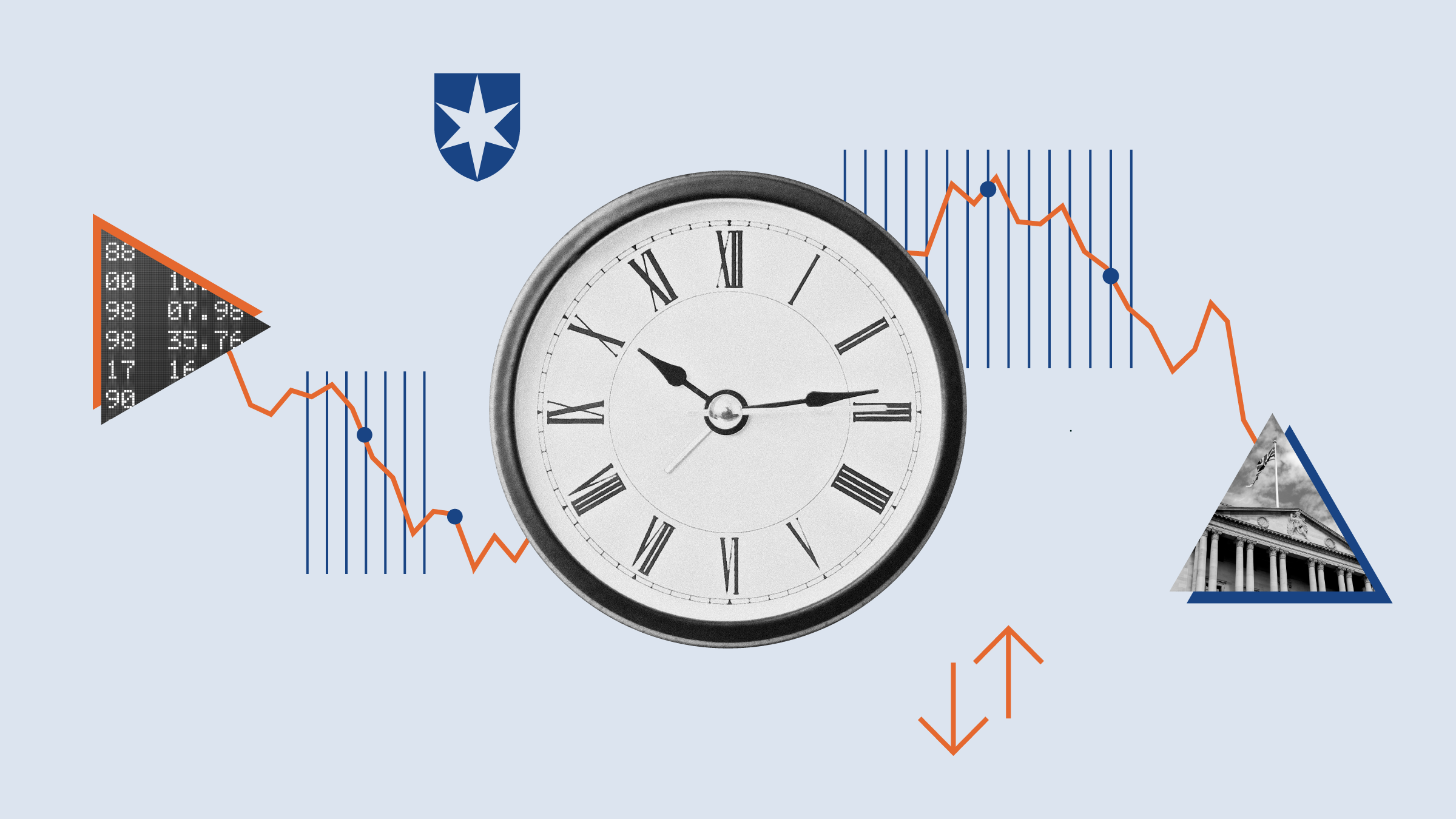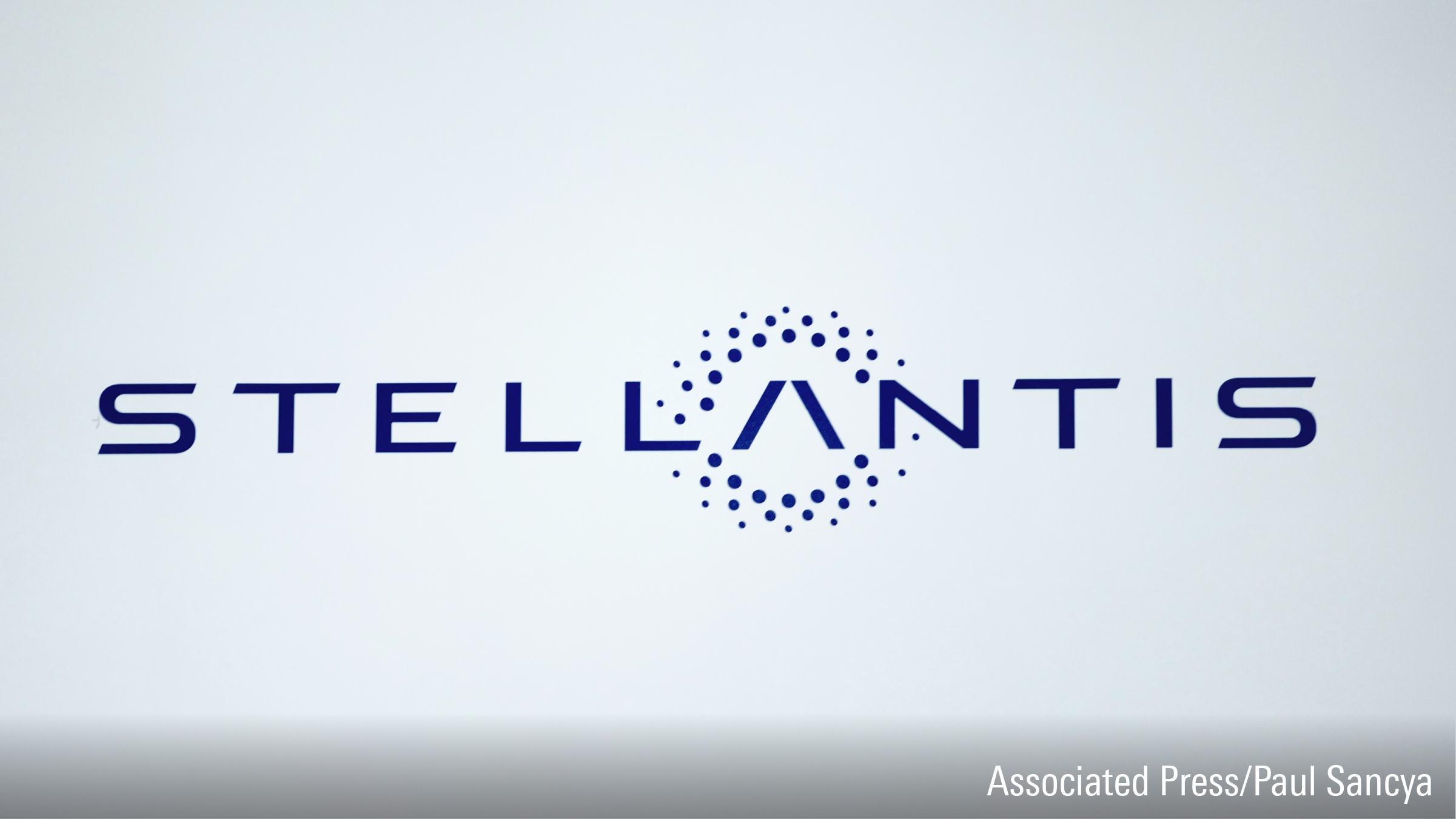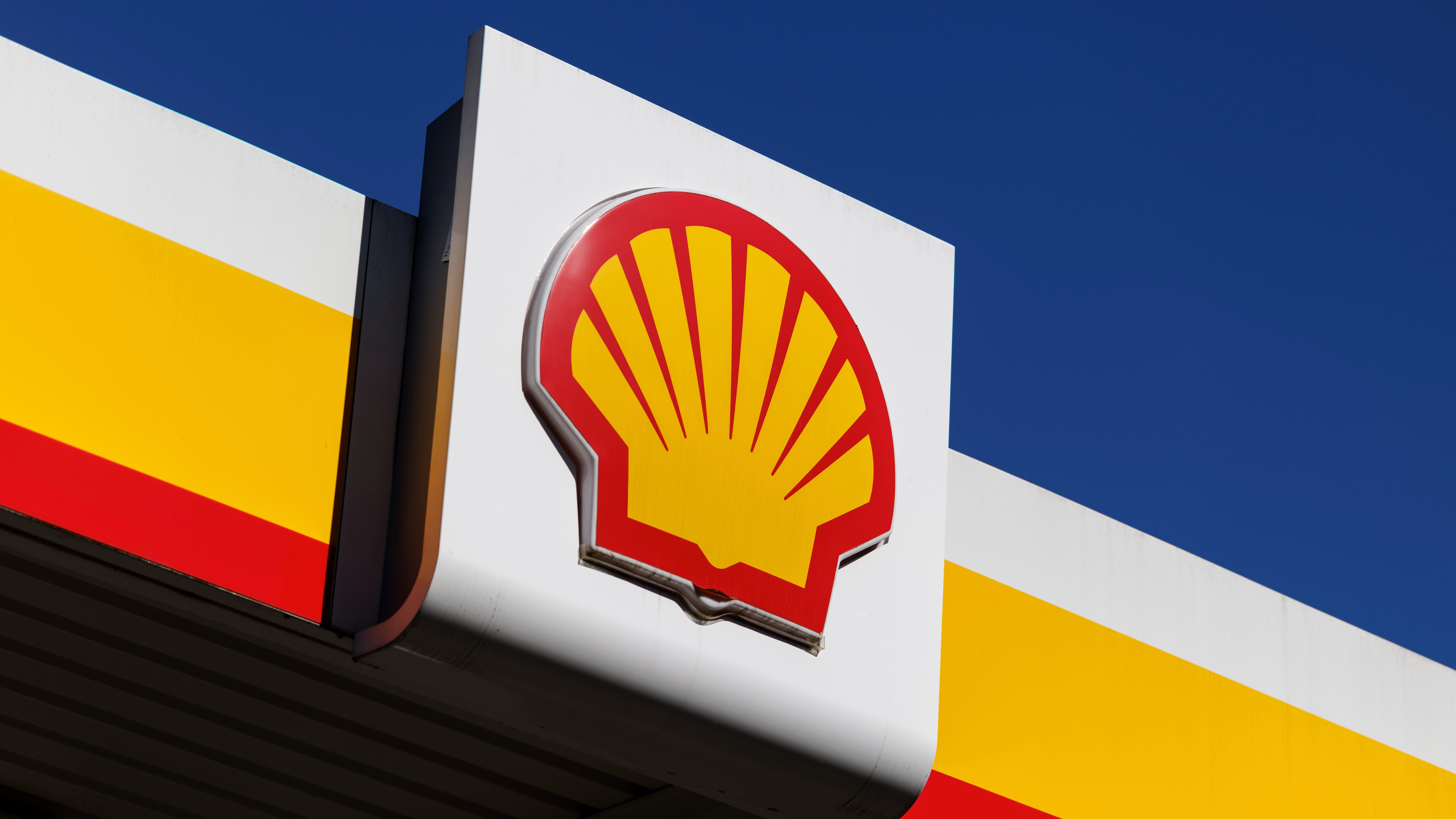
Cautious optimism that the FTSE 100 might hit another record high by the end of the year has given way to harsh reality.
Back in September, falling inflation and the political stability provided by a new government made some commentators hopeful of a fresh high before December’s “Santa rally.”
But the fresh high hasn’t materialized.
The UK blue chip index is currently trading at 8,082 points—a fair distance from the record high of 8,445.80 points it hit in May.
The Morningstar UK index is up 8.40% in the year to date, but 2% down over the last month.
Why Has The FTSE Been on a Downward Trajectory?
Michael Field, European market strategist at Morningstar, says it’s only natural to see the FTSE 100 dip after a strong run. But Donald Trump’s victory hasn’t helped, he says.
“The catalyst for it to fall was probably the US election,” he explains.
“A Kamala Harris victory would have probably been better received in Europe.”
President-elect Trump’s decisive win resulted in a U.S. stock market rally as investors reacted positively to the promise of widespread deregulation.
A subsequent rise in the dollar has had a mixed effect on UK stock markets. Some dollar-earning stocks in the FTSE 100 like Shell SHEL have prospered, while more domestically focused stocks reporting in pound sterling like housebuilders have struggled with the currency headwind.
Trump’s promise to place tariffs of between 10% and 20% on all goods coming into the U.S.—and tariffs as high as 60% on all products imported from China—has shaken Europe’s markets, which fear the inflationary effects of protectionism.
“Europe is the US’ largest trade partner. But for the most part, we have escaped any issues with him. Nearly all his tariffs previously were aimed at China,” Field says.
“Now he has realized just how big a trading partner Europe is, and that Europe’s been running a trade surplus with the US for the last 15 plus years.
“He has the time, the energy, and the people around him to start targeting other places apart from China. The danger is that Europe now comes into focus.”
Which Stocks Are Weighing on The FTSE 100?
The UK’s blue chip index has been pulled down by the performance of five stocks: housebuilders Vistry Group VTY and Persimmon PSN, paper and packaging giant Mondi MNDI, the pharmaceutical firm AstraZeneca AZN, and wealth manager Schroders SDR.
Key Morningstar Metrics For Vistry Group VTY
• Quantitative Economic Moat: None
• Quantitative Fair Value Estimate: £13.10
• Forward Dividend Yield: None
• Quantitative Morningstar Rating: 5 stars
• Sector: Consumer Cyclical
• Quantitative Morningstar Uncertainty Rating: Very High
Home construction company, Vistry Group VTY, is the worst-performing stock in the FTSE 100 over three months.
The company is down -41.47% over three months, and 43.5% over six. Shares are currently trading at £7.19.
This month Vistry issued a second profit warning, stating that cost overruns on projects would reduce its profits. In October, the business also found it underestimated total build costs by about 10% in its South of England division.
The housebuilder projected this error would reduce its profits by £115 million over the next two years. But after a second evaluation the projected profit hit increased to £165 million. The news has battered the construction company’s share price, wiping around £1 billion from its market capitalization.
Key Morningstar Metrics For Mondi MNDI
• Quantitative Economic Moat: None
• Quantitative Fair Value Estimate: £14.91
• Forward Dividend Yield: 5.01%
• Quantitative Morningstar Rating: 4 stars
• Sector: Basic Materials
• Quantitative Morningstar Uncertainty Rating: High
Over the last six months Mondi PLC MNDI, the multinational packaging and paper producer, has seen its share price tumble by 27.66% to £11.59.
The company saw its underlying earnings for the third quarter fall by 37% to £186 million, but the business has suffered from maintenance shutdowns, a forestry fair value loss, softer demand, as well as higher input costs.
Mondi recently acquired packing competitor Schumacher for £528 million, with the aim of expanding its e-commerce reach throughout Europe, especially in Germany.
Key Morningstar Metrics For Persimmon PSN
• Economic Moat: None
• Fair Value Estimate: £23.00
• Forward Dividend Yield: 4.57%
• Morningstar Rating: 4 stars
• Sector: Consumer Cyclical
• Morningstar Uncertainty Rating: High
Over the last six months Persimmon’s PSN share price has lost 11.55% and is currently trading at £12.51.
The UK’s second-largest housebuilder has said that it was on its way to fulfilling its target of building 10,500 homes for the full year.
In Q3, the company built 1,416 homes, which included a 3% uptick on private homes to 1,267, alongside 149 so-called “partnership” homes. However, investors remain wary of the stock due to Persimmon’s own admission that it will face inflationary pressures.
The business has not provided specific guidance about the levels of build cost inflation it expects to see next year, but Morningstar senior equity analyst Grant Slade suspects much of the pressure will be baked into new energy performance guidelines—known as the Future Homes Standard.
“We make no change to our 2025 estimates, which already incorporate expected incremental costs associated with FHS compliance,” he says.
“Consequently, we see the Nov. 7 share price reaction as an overreaction. Shares continue to screen attractively relative to our unchanged GBX 2,300 fair value estimate, trading at a still cyclically depressed 1.4 times book value (versus an average of 2.3 times over the course of the prior housing cycle).”
Key Morningstar Metrics For AstraZeneca AZN
• Economic Moat: Wide
• Fair Value Estimate: £124.00
• Forward Dividend Yield: 2.34%
• Morningstar Rating: 4 stars
• Sector: Healthcare
• Morningstar Uncertainty Rating: Medium
The UK’s second largest company by market capitalization, AstraZeneca AZN has seen its share price fall by 16.79% over the last six months to £101.69.
Despite the pharmaceutical giant reporting solid Q3 revenues of $13.6 billion (£10.63 billion), an increase of 21%, the business is straddling an investigation into the head of its China business, Leon Wang, who has been detained for allegedly illegally importing AstraZeneca’s cancer drug Imjudo into China.
The investigation has dampened the company’s share price, with the possibility the case impacts the firm’s ability to do business in one of its largest markets.
AstraZeneca is the largest drugmaker in China and sold around $6 billion (£4.69 billion) in products last year.
Key Morningstar Metrics For Schroders SDR
• Economic Moat: Narrow
• Fair Value Estimate: £4.20
• Forward Dividend Yield: 6.98%
• Morningstar Rating: 4 stars
• Sector: Financial Services
• Morningstar Uncertainty Rating: Medium
Schroders SDR has also seen its share price drop by 19.38% to £3.02 over the last six months. This month the City firm announced it lost around £10 billion in net outflows this quarter.
Schroders’ solutions business also faced an £8 billion outflow in Q3 from its legacy Scottish Widows mandate, while three institutional clients withdrew £2 billion from the firm’s strategies.
This came as Schroders suffered £2.3 billion of outflows in the three months to September, which brought the UK asset managers’ total assets under management to £777.4 billion.
The firm’s new CEO Richard Oldfield, who took over from Peter Harrison, has recently reduced the members of the firm’s executive committee from 22 to nine, in a move to make the business nimbler.
Oldfield has taken on the job of reviving the 220-year-old company’s fortunes after its stock has slumped 44.82% over the last five years.
The author or authors do not own shares in any securities mentioned in this article. Find out about Morningstar's editorial policies.


























